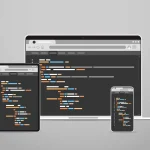
Understanding Variables and Data Types in PHP ????
Hello, fellow PHP explorers! ???? As we continue our PHP journey, we’re about to delve deeper into the language’s heart. After setting up our PHP environment and crafting our first PHP page, it’s time to unravel the mysteries of variables and data types. So, put on your explorer’s hat, and let’s dive in!
PHP Variables: Understanding the Lockers of Data ????
In the realm of PHP, variables are like lockers, each storing a unique piece of data for later use. They’re the bread and butter of any PHP script, holding the data we want to manipulate and display. Here’s an example:
<?php
$greeting = "Hello, PHP explorer!";
$year = 2023;
?>
In this snippet, we’ve created two variables: $greeting, which holds a string, and $year, which holds an integer. But remember, PHP is case-sensitive—$greeting and $Greeting are different variables!
PHP Data Types: The Items Inside Our Lockers ????
Beyond the basics of variables, PHP supports eight primitive data types, which we can think of as the different kinds of items our lockers can hold. Let’s examine each of them:
Scalar Types ⚙️
1. Boolean ????????
A Boolean represents two possible states: TRUE or FALSE. They are often used in conditional testing.
<?php
$isPHPFun = true; // assigns the value TRUE to $isPHPFun
?>
2. Integer ????
An integer is a non-decimal number between -2,147,483,648 and 2,147,483,647.
<?php
$year = 2023; // assigns integer value 2023 to $year
?>
3. Float (floating point numbers – also called double) ????
A float is a number with a decimal point or a number in exponential form.
<?php
$price = 10.99; // assigns the float 10.99 to $price
?>
4. String ????
A string is a sequence of characters, like “Hello world!”.
<?php
$greeting = "Hello, PHP explorer!"; // assigns string to $greeting
?>
Compound Types ????
5. Array ????️
An array stores multiple values in one single variable.
<?php
$cars = array("Volvo", "BMW", "Toyota"); // assigns three values to $cars
?>
6. Object ????
Objects are instances of programmer-defined classes, which can package up both other kinds of values and functions that are specific to the class.
<?php
class Car {
function Car() {
$this->model = "VW";
}
}
// create an object
$herbie = new Car();
// show object properties
echo $herbie->model;
?>
Special Types ????
7. NULL ????
NULL is a special data type which can have only one value: NULL. A variable of data type NULL is a variable that has no value assigned to it.
<?php
$x = null; // assigns null to $x
?>
8. Resource ????
The special resource type is not an actual data type. It is the storing of a reference to functions and resources external to PHP.
<?php
// $file is a resource because it holds a reference to an external resource
$file = fopen("test.txt", "r");
?>
Exploring these data types is like unlocking new PHP powers! Next time you’re writing a script, think about what data types you’re using and how they can help solve your problem more efficiently.
Wrapping Up and Peeking Into the Future ????
Congratulations on your progress, PHP adventurer! You’ve dived into PHP’s building blocks and discovered variables and data types, crucial elements of PHP. But the journey doesn’t stop here.
Next, we’re exploring PHP’s control structures, giving our PHP code the superpower to make decisions! It’s a thrilling next step in our journey. So, stay tuned, keep exploring, and remember: every line of code brings us closer to PHP mastery!
Now, we want to hear from you! Do you have any questions, comments, or experiences you’d like to share? Leave a comment below—we’d love to hear your thoughts. Remember, your insights can make someone else’s PHP journey smoother.
And if you found this guide useful, please consider sharing it with your peers! Let’s create a world where everyone can explore PHP with ease.
Further Reading ????
Eager to explore more? Check the official PHP documentation on variables and data types. Plus, make sure to revisit our past adventures on setting up your PHP environment and creating your first PHP page for a thorough understanding. Happy coding!







